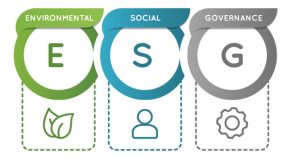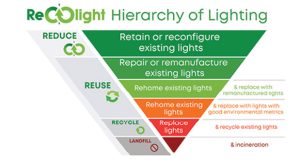 CJ Green, Co-Founder of BraveGoose and Co-Creator of CleverGoose HR Advice Technology, on why FMs are the architects of workplace change
CJ Green, Co-Founder of BraveGoose and Co-Creator of CleverGoose HR Advice Technology, on why FMs are the architects of workplace change
The disciplines of human resources and facilities management are increasingly becoming blurred in organisations, primarily because we are now facing such a significant workforce upheaval and challenge which we have not encountered before. The primary debate is, of course, about the ‘office’ and how in the post pandemic era we may need different things in place in order to optimise workforce performance.
In recent months we have seen some really polarised examples of organisations making different choices about the workplace, PwC were much derided by Lord Sugar for offering greater flexibility to their workforces during the summer months, more recently Elon Musk has been rumoured to be insisting that all of his workforce need to return to a workplace setting (unless you are particularly special that is).
Whichever side you fall on the ‘work from home’ debate there is no doubt that many have us have grown weary with the repeated fixation on the topic. We see constant references to whether working from home allows increased flexibility and therefore higher performance or whether you believe that the temptations of trips to the fridge and excessive coffee make working away from the office highly unlikely to deliver high performance results.
Regardless of the tediousness of the debate the reality is that there has never been a more significant time for the facilities management profession. I have long held a view that the facilities management industry can have more influence over workplace performance than they realise, and having spent years being unsung heroes have the best opportunity now, to step out into the light and bring some significant modern thinking to the current workforce debate.
You only have to simply look at how FM professionals are described to understand why I may think that;
IWFM – The role of facilities management is to:
- Optimise the use of, and manage, workplaces in order to deliver the strategic objectives of the organisation.
- Identify examples of best practice, assess emerging developments in business thinking and be able to present realistic plans for the introduction of new innovative ways of working.
- Optimise operational effectiveness, whilst ensuring compliance with key legislation and ensuring the workplace adapts to the changing needs of the organisation.
On top of this, the FM profession is at the front end of interactions with people. Historically HR can get caught up with policy and process and reacting to the demands of an evolving workforce whereas FM can create a proactive strategy to encourage workforce connection and collaboration.
FM INFLUENCERS
The FM professional is ideally placed to genuinely influence how people perceive their workplace. While there are many parallels between HR and FM given the strong connection to ‘enabling people’ for the good of an organisation, I am also reminded that both of these roles have evolved significantly in recent years, not least because of the pandemic.
COVID-19 threw both these professions deep into the depths of the tiring support required to keep organisations productive through a very challenging time and here we now stand either on the brink of fundamental change in both of these professions or simply for each one to decide to return to business as usual. I am hopeful for the former.
You may have come across a wonderful book called Nudge , written by Richard Thaler and Cass Sunstein. The book itself focuses on behavioural science and its impact in government and private organsiations, the ‘nudges’ that can drive behaviours.
Reading the most recent release of the book called ‘Nudge the Final Edition ’ I am reminded of the connection between both the HR and FM professions and the significant impact both can have.
These roles, executed well, are the ‘change architects’ for the modern organisation and each one of these professions have to play their part to remove the ‘sludge’ in order to drive organisational performance. Removing the sludge is to reduce the impact of things that make it difficult to do our jobs well.
In the case of a HR professional that would mean paying attention and reducing workplace bureaucracy to make it easier for people to perform well at work, genuinely focusing on the tools and skills needed for epic productivity and growth of individuals.
For an FM professional it is creating and contributing to environments in the workplace that encourage modern forms of connection and collaboration, where people are truly colliding with purpose to move an organisation forward.
The lines are blurring between these two, often behind the scenes, professions and I believe that FM is emerging at the forefront of the design of the modern workforce.
Now we need to ensure that as FM engages with that design they employ innovative thinking, insight and skill to be able to steer organisations through the next phase of the workplace evolution.





